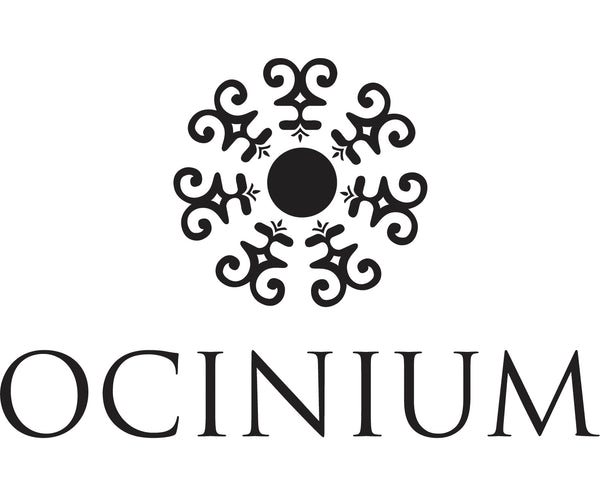There is a sophisticated and complete antioxidant system in the skin, which is used as a defense to the oxidation reactions and free radicals induced by sun exposure, UV and ozone pollution.
The skins antioxidant defence consists of two systems, including the enzyme antioxidant system which consists of [superoxide dismutase (SOD) and catalase (CAT)] and a non-enzymatic antioxidant system (vitamin C, vitamin E, and glutathione).
Vitamin C plays an important role in maintaining skin health and can promote antioxidant protection against UV-induced photodamage. Normal skin needs high concentrations of vitamin C, which plays many roles in the skin, including the formation of the skin barrier and collagen in the dermis, the ability to counteract skin oxidation, and the modulation of cancer cells and growth.
Vitamin C must be obtained through the diet, we cannot synthesis this vitamin for use, however, studies have shown that very little dietary levels of vitamin C make it to the skin, which is why it is so important to apply topical vitamin c and e serums daily to the skin.
Human skin consists of three layers: the epidermis, dermis, and subcutaneous tissue, which together forms the body’s first line of defense against harmful environmental stressors. There is a large difference in the content of vitamin C in the different layers of the skin. The content of ascorbic acid in the epidermis, the most outer layer of the skin is 425% higher than the content in the dermis, and there is a concentration gradient of ascorbic acid in the epidermal keratinocytes which maintain the function and integrity of the skin barrier, preventing skin water loss.
There are two transport mechanisms for ascorbic acid in the skin, which influence the concentrations of vitamin c in the skin and the skins stress conditions, with vitamin c activity in the skin associated with skin healing, antioxidation, and antitumor effects.
When it comes to brightening activity of vitamin C in dark spots, pigmentation and post inflammatory hyper pigmentation, vitamin C helps to inhibit the enzyme tyrosinase, which prevents melanin production, lightening pigmentation. Furthermore, the combination of vitamin C and vitamin E inhibits melanocyte production more significantly than vitamin C alone, with a strong synergy to these antioxidant vitamins, you will often find these two antioxidants within formulations of vitamin c and e serums.
As an antioxidant, vitamin C is a powerful anti-inflammatory reagent, reducing oxidative stress and inflammation associated with sun damage, post inflammatory hyper pigmentation, atopic skin conditions and acne.
Most of you are aware that vitamin C is notorious for being very unstable, it oxidises when exposed to water, light or air and degrades easily, rendering it useless and ineffective. In fact when vitamin C is oxidised, it changes its potential from an antioxidant to a pro-oxidant. The pro-oxidant activity can increase sensitivity and irritation to the skin, not to mention leave your skin a slightly stained orange-brown colour, think fake tan effect!
There are different forms of vitamin c in skincare, the more oxidative-resistant forms of vitamin C are relatively still new. They require your skin to work a little harder to convert them for bioavailability, but the up side is that these vitamin c esters have been shown to penetrate the skin on a deeper level, and are less likely to cause irritation and sensitivity.
Oxidation-resistant forms of vitamin C include ascorbyl tetraisopalmitate (ATIP), magnesium ascorbyl phosphate (MAP), tetrahexyldecyl ascorbate (THDA), sodium ascorbyl phosphate (SAP). Regardless of the different forms of vitamin C, unanimously all will help to reduce skin inflammation, pigmentation and promote healthy collagen production.
When it comes to your vitamin c skincare routine, you don’t necessarily absorb more vitamin C just because a product has a higher concentration. Studies indicate that the maximum absorption seems to happen with 20% vitamin C serum and regular application is required every 8 hours to achieve constant tissue reserves.
Natural ageing, UV damage, environmental stress such as pollution, rapidly decline the skins antioxidant reservoir reducing the skins natural defence to free radicals, weakening the skin barrier, reducing collagen, elasticity and tone.
Apply a well formulated vitamin C and E serum of a morning after cleansing, exfoliation aids vitamin c absorption as it removes the outermost dead layers of your skin that hinder absorption. When using a vitamin c skincare routine, apply before an antioxidant cream and always follow with a sunscreen. Tip: vitamin C boosts the efficacy of your sunscreen, increasing the skins sun protection and also assists in skin repair after sun exposure.
Ocinium Luminosity Vitamin C Serum contains our highest percentage of vitamin C and E serum with rosehip seed oil rich in polyphenols. This vitamin C ester delivers specific brightening activity in the skin, preventing collagen breakdown and boosting collagen levels in the skin.

